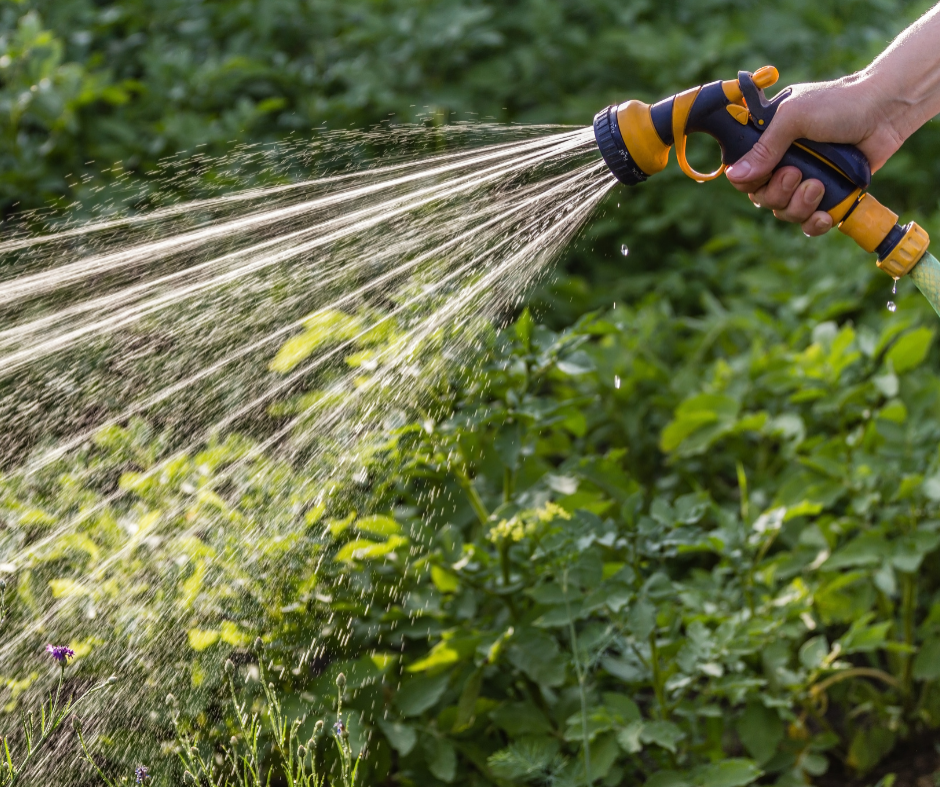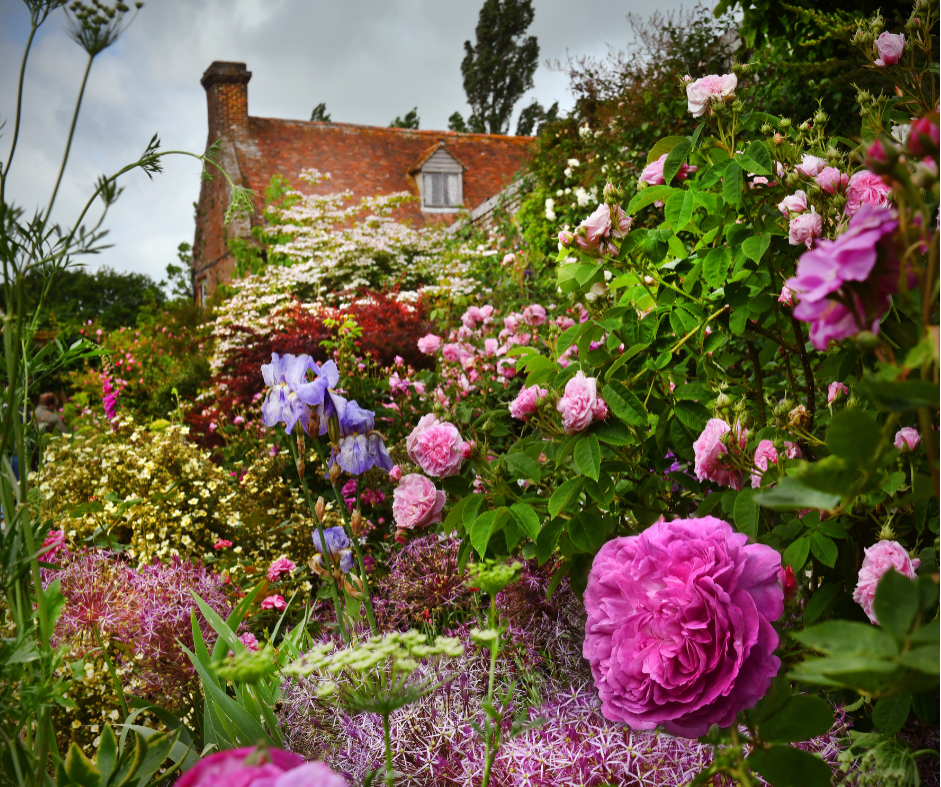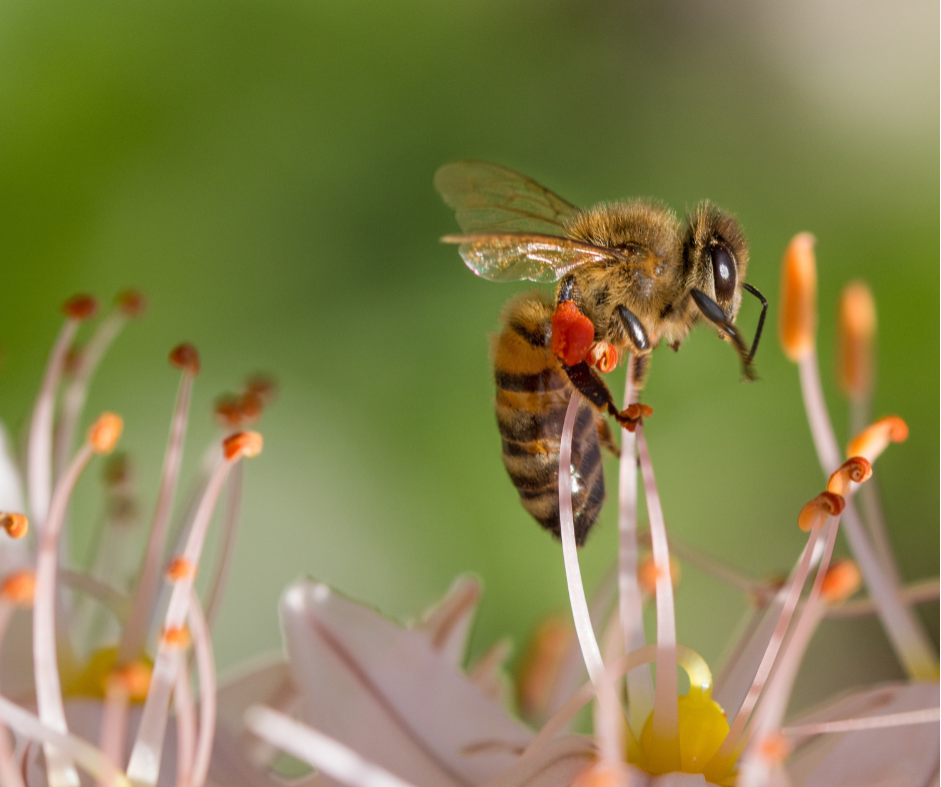We’ve certainly had our fair share of beautiful weather this summer, with the country being hotter than many European destinations at times. The weather is heating up, which means people can now spend more time in their garden – even through the early autumn months.
While the hot weather is a welcome surprise, your garden will need a little more care and maintenance. So, if you’re wondering how to keep your outdoor space thriving, keep reading – because we’ll cover everything you need to know in this post.
Let’s dive straight in.
Be Flexible With Your Watering Schedule

Our first tip for you is to be flexible with your watering schedule. Depending on the amount of rainfall in your area, you may need to water your garden more or less frequently.
If it’s been particularly dry and there hasn’t been much rain, then make sure to water your plants regularly – at least once a week. If you notice the leaves beginning to droop or turn brown, this is a sign that they’re not getting enough water.
On the other hand, if it’s been raining quite frequently, you can cut back on how often you water your garden. Over-watering can be just as harmful as under-watering, so finding a happy medium is essential.
The best way to determine how often to water your garden is to check the soil before watering. If the top layer of soil is dry, then it’s time to give your plants a drink.
Remember, some plants require more water than others, but knowing which are in your garden will make the entire process easier.
Use Mulch To Lock The Water Into The Soil
Mulch is a fantastic way to keep your garden healthy – and it’s something every gardener should use. You can make mulch with various materials, including straw and grass clippings, because the term refers to something that covers the soil’s surface in your garden.
Mulch serves two primary purposes in the garden: it helps lock moisture into the soil and prevents weed growth.
Weeds compete with your plants for water and nutrients, so preventing them from growing in the first place gives the plants a much better chance of thriving.
You can apply mulch around the base of your plants or even spread it across the entire surface of your garden bed. Just make sure to leave a few inches around the base of each plant so that the stems aren’t covered.
Choose The Right Plants

Another important gardening tip for the summer is to choose the right plants. Not all plants thrive in hot weather, so you should always do your research before you buy anything.
Some good options for summer plants include Marigolds, Zinnias, Impatiens, and Petunias. These flowers can withstand high temperatures and plenty of sun exposure.
If you’re unsure which plants are suitable for your needs, our garden designers in London can help you. We specialise in bespoke landscaping services and understand that each space is different.
From the position of your garden to your gardening experience, we’ll work with you to find the ideal solution.
Fertilise Your Plants Regularly
Another important gardening tip for summer is to fertilise your plants regularly to help them become strong and healthy and produce an abundance of fruit and flowers.
There are a range of fertiliser options available on the market, so it’s important to choose one suited to the plants you have in your garden.
Organic fertilisers are a great option as they’re gentle on the environment and won’t harm your plants. If you’re unsure which fertiliser to choose, our team can advise you on the best option for your needs.
Make Sure You Provide For The Wildlife

During the summer months, you should provide for the wildlife in your garden as they will be relying on your plants for food.
If you have a pond, make sure it has plenty of aquatic plants, as these will provide shelter and food for the fish. It would help if you also considered adding a birdbath or water fountain to your garden as this will provide a source of freshwater for the birds.
Insects are a central part of the ecosystem, so don’t forget to provide for them too! Plants such as Lavender, Marjoram, and Thyme are all great options as they attract bees and other pollinators.
Keep Yourself Cool
Finally, one of the most important gardening tips for summer is keeping yourself cool. Gardening, in general, is classed as a low-impact exercise, but it can be strenuous work in the height of summer.
If you can, garden in the morning or evening when the sun isn’t at its strongest – or if you do have to garden during the day – wear loose-fitting clothing and a hat to protect yourself from the sun.
Dehydration isn’t fun and will slow down your gardening, leaving it a mess for the autumn and winter months.
Get The Whole Family Involved
One of the best things about gardening is that it’s an excellent activity for the whole family. Kids love getting their hands dirty, and it’s a great way to teach them about where their food comes from.
If you have the space, you could even consider setting up a small vegetable patch that everyone can help to care for. Tomatoes, carrots, and radishes are all easy to grow and make great additions to salads and stir-fries.
Gardening also gets the kids into the fresh air and away from the TV, so it’s ideal for quality time.
Final Thoughts
Hopefully, this post gives you some excellent ideas about how to keep your garden thriving during the summer months, and you can put the tips into practice. If you’d like some help, please feel free to contact our friendly team of landscape designers.
We look forward to hearing from you and hope you have a wonderful summer.
